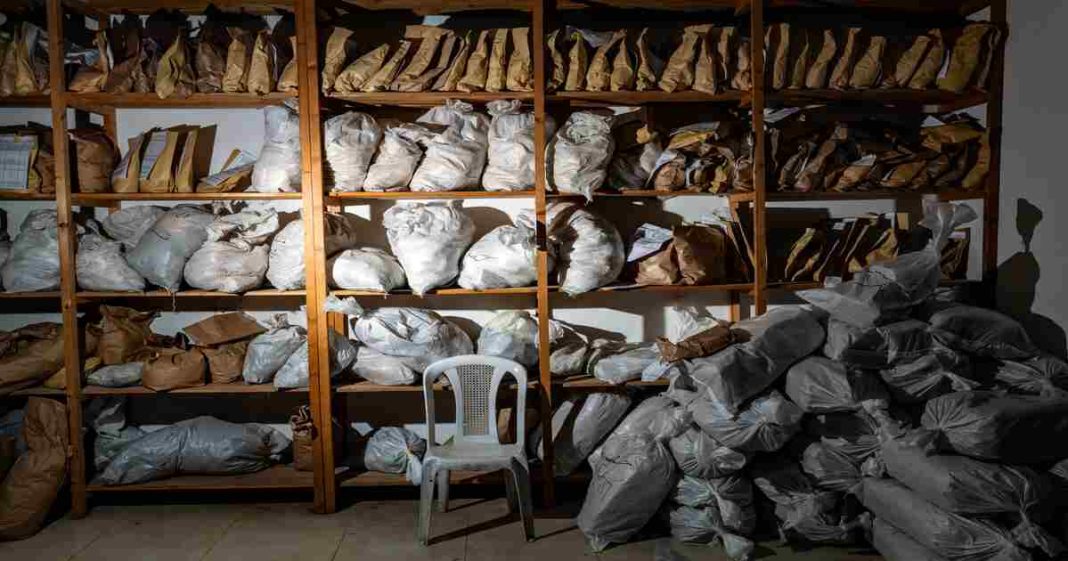Perched on a hill near a main road in Damascus, a sprawling industrial-scale narcotics lab has been discovered, shedding light on Syria’s role in the global trade of captagon. Once a brand-name stimulant developed in 1960s Germany to treat attention disorders and narcolepsy, captagon has evolved into a lucrative and illegal amphetamine-like drug, dubbed “poor man’s cocaine.”
Read More: G7 to meet on Syria, government pledges ‘rule of law’
The lab, located in Douma, was uncovered by rebel fighters who ousted President Bashar al-Assad in a lightning offensive. Inside the dark, cavernous warehouses, reporters found thousands of pills concealed in furniture, fruit, decorative pebbles, and voltage stabilizers—clever disguises designed for export. Many pills bore the distinctive double crescent logo or the word “Lexus,” common identifiers of captagon.
Evidence of an Industrial-Scale Operation
Fighters loyal to Syria’s new rulers led journalists into the facility, where they revealed a pill press and rows of barrels, boxes, and bottles filled with various chemicals used in the drug’s production. Chemicals such as chloroform, formaldehyde, acetic acid, and cyclohexanone bore labels showing origins from countries including Britain, China, India, and Lebanon. “This is how they wrap them and send them to countries abroad,” one fighter explained, showcasing export-ready pills hidden inside copper-wrapped devices to evade detection.
Assad’s Ties to the Trade
For years, President Bashar al-Assad’s government denied any connection to the narcotics trade. However, the regime has been accused by Western governments, including the United States, of profiteering from captagon production and export, turning the drug into a lifeline for its battered economy.
The illicit trade has reportedly funneled billions of dollars annually into Syria, with Assad’s brother, Maher al-Assad, and his Fourth Division of the Syrian army allegedly at its center. Caroline Rose, director of the New Lines Institute Captagon Trade Project, estimates that the Assad regime raked in $2.4 billion annually from the trade.
Although Maher al-Assad’s whereabouts remain unknown, and he could not be reached for comment, the scale of the operation underscores the systemic nature of Syria’s involvement in the captagon empire.
Captagon’s Impact on the Middle East
The stimulant has become entrenched across the Middle East, finding its way into conflict zones, construction sites, and high-end parties. Its effects—enhanced focus, suppressed appetite, and reduced need for sleep—have made it a drug of choice for fighters and laborers. However, it also poses severe health risks and is banned in many countries, including the United States.
As captagon abuse surges in Gulf Arab states, the drug trade has grown into a global concern. Experts value the illicit market at $10 billion annually, with Syria acting as a major hub for production and trafficking.
Read More: Israel refuses to leave Syria buffer zone
The fall of Assad’s regime has opened new opportunities for investigating Syria’s drug empire. The Douma facility, which experts believe may be one of the largest captagon labs ever found in regime-held territory, offers a grim testament to the scale and sophistication of the operation. Caroline Rose emphasized its significance: “It’s very possible that it’s the biggest one that existed in regime-held Syria.”














